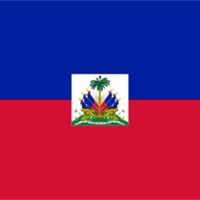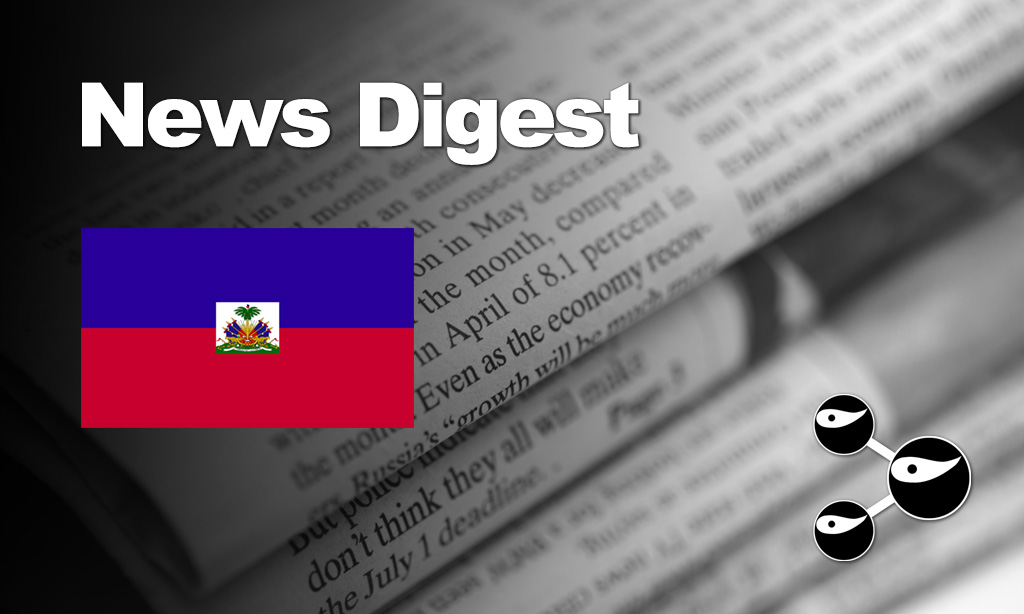A Short History of Haiti
On this page, you will find content we have found to contain useful, revelant and interesting information: news, links, books and Twitter accounts. If you think an important resource is missing, please let us know.

Haiti is very rich in history, and was the first Black country to win its independence. It's the second largest island in the Greater Antilles and shares the Caribbean archipelago with the Dominican Republic. In 1492, Christopher Columbus landed on the island and the Spanish occupation of Haiti went from 1492 to 1625. In 1697, Spain ceded the western third of Hispaniola to France. Toussaint Louverture was the best-known leader of the Haitian Revolution and Jean-Jacques Dessalines was the first ruler of an independent Haiti under the 1805 constitution. Both are the most revered Haitian heroes. But despite their rich history, Haitians have faced political instability: the Duvalier Era (1957-1986), then Jean-Bertrand Aristide. They also faced natural disasters: Hurricane Gordon (1994), Tropical Storm Jeanne (2004) and a devastating magnitude-7.0 earthquake on 12 January 2010 followed by a cholera outbreak. But Haitians are resourceful and resilient, learn more about their cultural heritage and how their initiatives are transforming the country!
Latest News about Haiti on the MagkaSama Project
Read more news on Haiti.News Digest Haiti: Fritz William Michel, Naomi Osaka, Jacques Dessalines, Dieudonne Luma Etienne,…
Published every Monday, and updated daily through the week, our News Digest Haiti is a selected compilation of recent stories on various topics to keep an eye on, from grassroots groups, major NGOs and international media sources around the world. Available in English and/or French. If you want to send a story idea or news […]News Digest Haiti: #PetroCaribeChallenge, Corruption, Bahamas, Festival de Jazz, Choléra,…
Published every Monday, and updated daily through the week, our News Digest Haiti is a selected compilation of recent stories on various topics to keep an eye on, from grassroots groups, major NGOs and international media sources around the world. Available in English and/or French. If you want to send a story idea or news […]News Digest Haiti: Fuel black market, Aid for the Bahamas, Makenzy Orcel, Parliament vote, Music…
Published every Monday, and updated daily through the week, our News Digest Haiti is a selected compilation of recent stories on various topics to keep an eye on, from grassroots groups, major NGOs and international media sources around the world. Available in English and/or French. If you want to send a story idea or news […]14ème édition de ‘Ti coup d’oeil sou Haïti’ à la Médiatèque de Suresnes
Cette année, la ville de Suresnes (à côté de Paris) fête ses 20 ans de coopération avec la ville du Cap-Haïtien, et pour cet anniversaire se déroulera du 20 au 25 novembre 2018 la 14ème édition de ‘Ti coup d’œil sou Haïti‘. La gastronomie haïtienne sera mise à l’honneur et des expositions, des ateliers de […]Gede Fest celebrates Creole culture between Haiti and New Orleans
The first edition of the multidisciplinary Gede Fest (from October 25 to November 3, 2018) started yesterday in Haiti and takes place in Port-au-Prince and Jacmel. The festival mixes history, music, gastronomy and the arts, and explores all facets of Creole culture. We can read on HaitiLibre the Festival’s vocation is to strengthen ties between […]More News related to Haiti
Selected Internet resources (French and English) about Haiti news:
Haiti Sun






